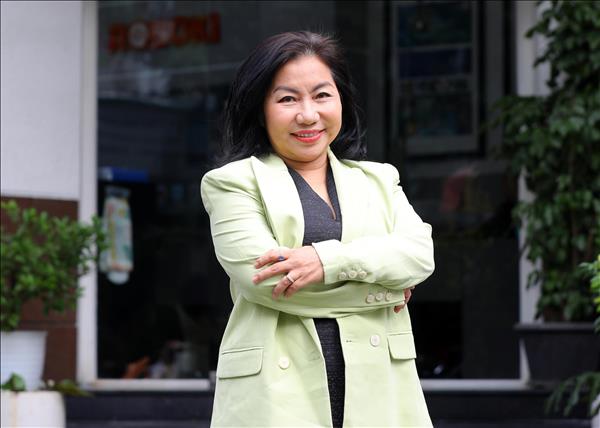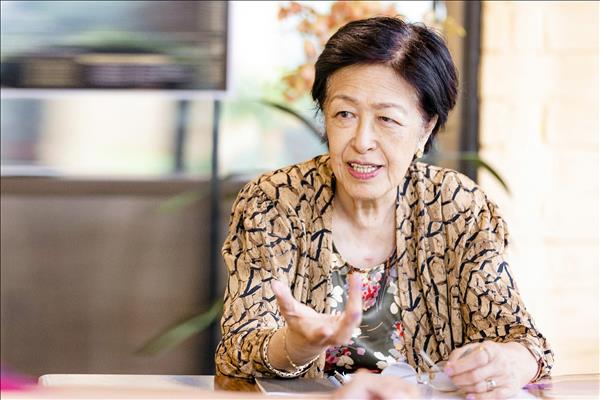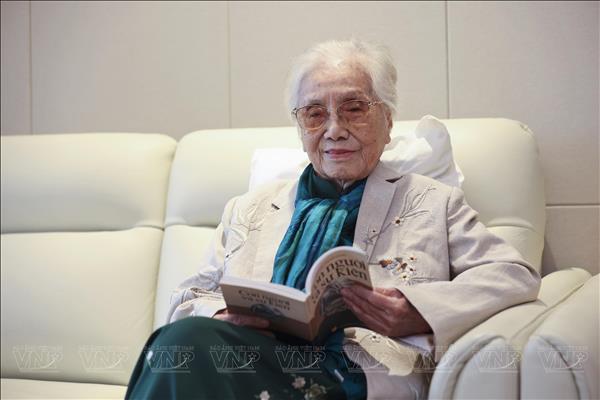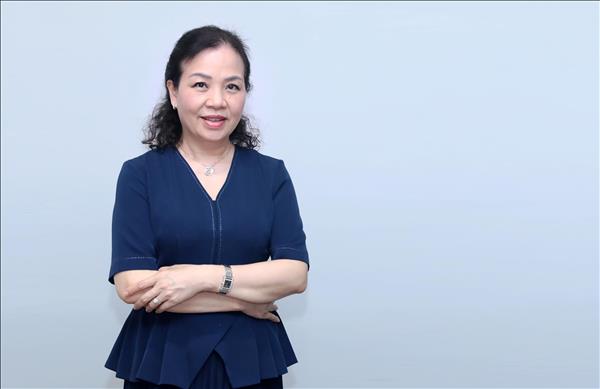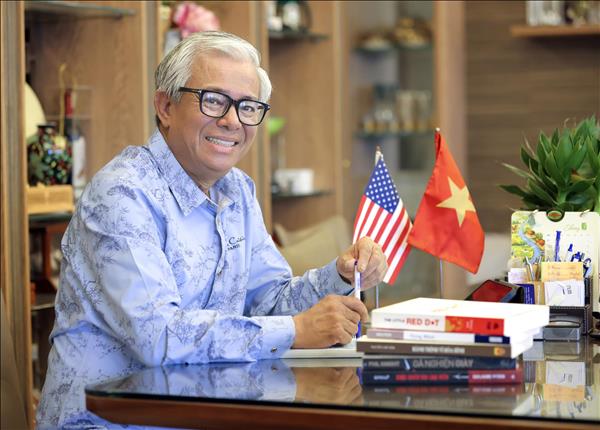Colonel Nguyen Van Tau or Tu Cang, a Hero of the People’s Armed Forces has a special talent for shooting with both hands and is known as a talented, well versed and brave man. He successfully led the H.63 intelligence network, that had many legendary spies, such as Pham Xuan An and Tam Thao, that achieved glorious victories, contributing to the liberation of South Vietnam in 1975.
Tu Cang was born into a poor peasant family in a small village in Long Phuoc Commune, Ba Ria Town of Ba Ria-Vung Tau Province. Like many other children during the war, he also had a miserable and bitter childhood.
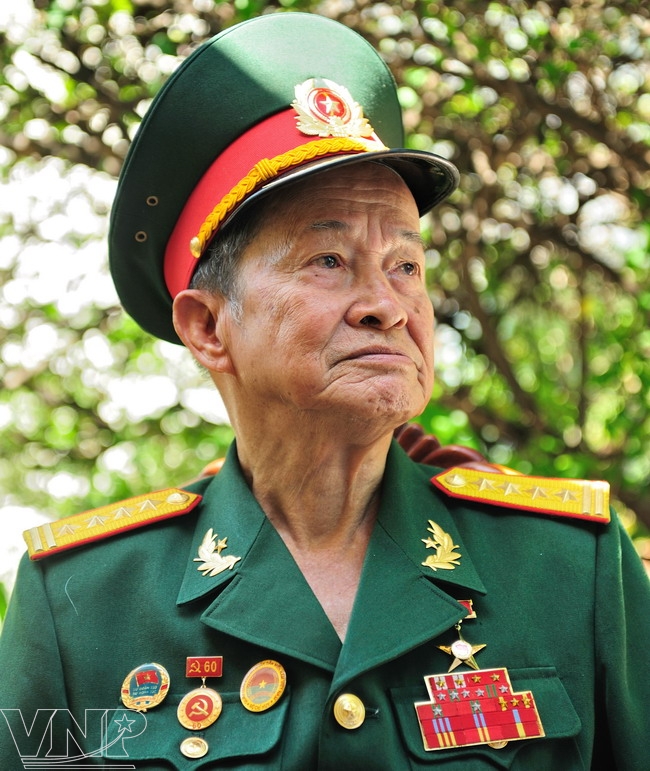 Colonel Tu Cang, Hero of the People’s Armed Forces (November, 2011). Photo: Nguyen Luan 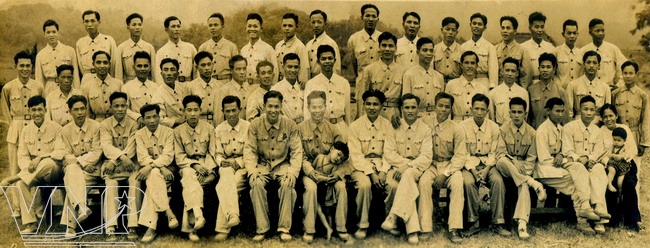 Tu Cang (First row, 7th from left) and the Information Company, Regiment 656 (1957). Photo: File |
The French occupied his village when Tu Cang was 19 years old. He left his house to go to the war zone to join the Viet Minh (Vietnam Federation of Independence), leaving his wife whom he had married a year earlier. In 1954, the Geneva Agreement was signed. He was sent to the North and was enrolled in the intelligence group.
Knowing that he would be sent to the South to engage in clandestine activities, Tu Cang tried his utmost to learn special skills. Intelligent and conversant in many things, he learned very quickly. He also studied other subjects, from photography, driving and writing to learning many “tricks” for later use to defend himself. He was proficient in both English and French and could use a pistol with both hands. In a pistol competition he was fourth behind only three other shooting masters of the North at that time, Tran Oanh, Tran Minh and Ho Xuan Ky.
In December 1961 Tu Cang was assigned to return to the South to work. In April 1962, in Duong Minh Chau war zone in Tay Ninh, the Regional Intelligence Division assigned him to command the H.63 intelligence group in control of the spy, Pham Xuan An alias Hai Trung. Pham Xuan An was the “trump card” of Vietnam’s intelligence, who engaged in clandestine activities inside the enemies camp in inner Saigon and later was known as a legendary spy for the Vietnamese army during the anti-US resistance war for national freedom.
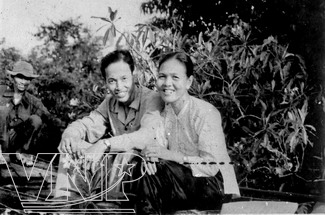 Tu Cang and his wife, Tran Thi Ngoc Anh, in the southern military zone. Photo: File |
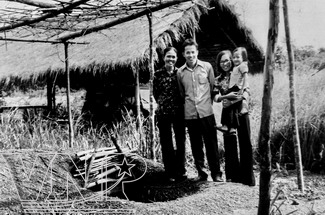 Tu Cang and his family before he joins the southwestern border battle against the Khmer Rouge in 1978. Photo: File |
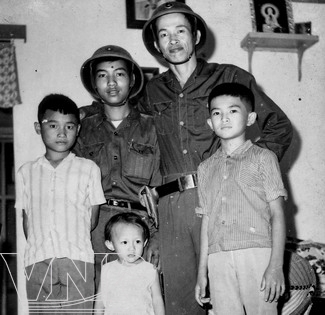 Tu Cang meets his children again after the liberation of the South. Photo: File |
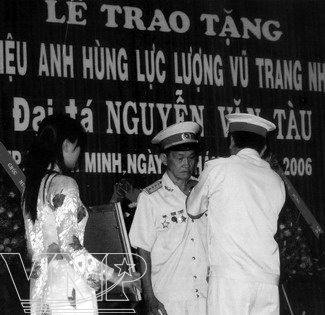 The awards ceremony of the title “Hero of the People’s Armed Forces” to intelligence spy Tu Cang (March, 2006). Photo: File |
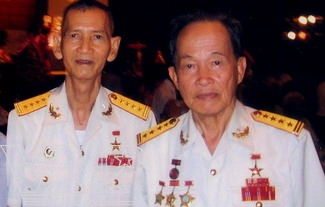 Intelligence hero, Colonel Tu Cang and his comrades of the H.63 intelligence group. Photo: File |
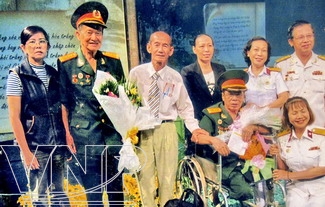 Intelligence hero, Colonel Tu Cang and his comrades of the H.63 intelligence group. Photo: File |
| During the anti-US resistance war, the H.63 intelligence group was considered the most effective intelligence resource. The group had 45 members, of whom 27 were killed and 13 wounded during their operation. |
As the chief of the H.63 group, Tu Cang was responsible for an armed team of 20 members at Ben Dinh base (in Nhuan Duc Commune, Cu Chi District, Sai Gon City). He led his team against the enemy’s raids, provided the soldiers with military tactical and technical training and commanded liaison members in strategic hamlets to go to Sai Gon to receive information sent by agents in the inner city.
In 1965, the US sent a lot of troops to South Vietnam. Tu Cang had the task of making closer contact with other spies in inner Sai Gon. In 1966, he secretly entered Sai Gon to directly command his intelligence network.
To be able to live for a long time in the enemy’s area without being discovered, Tu Cang had to do a lot of work and play many roles. Talking about this period, Colonel Tu Cang said that unlike the foreign intelligence agents who usually kept their last bullet to kill themselves in case they fell into enemy hands, he never brought a weapon with him while he worked in the city. Sometimes he was worried at the thought of it, but because of secrecy requirements, he adhered to the principle and was ready to sacrifice himself in case of discovery to keep the secrecy of his team-mates and the safe operation of the agents’ network.
After the battle during the New Year’s Holiday in 1968, Tu Cang attended a refresher course for Political Commissars. In 1969 he took the post of Deputy Political Commissar of the Intelligence Division under the Regional Staff. In 1973, he was sent to attend a high-grade political class of the army, then worked as the Political Commissar of the 316th Special Task Force Brigade and participated in the campaign to liberate Sai Gon. In 1978 he commanded this unit on the southwestern border front and was wounded (grade 2/4). After the war ended, in 1980 he worked as Principal of the Culture School of Military Zone 7 in Vung Tau for one year and retired.
Under Tu Cang’s command, the H.63 intelligence group became the most effective intelligence network during the anti-US resistance war. In 1971, the group was awarded the title “Hero of the People’s Armed Forces” by the Party and State. In March, 2006 Tu Cang was awarded the title “Hero of the People’s Armed Forces”.
In 1965, the US sent a lot of troops to South Vietnam. Tu Cang had the task of making closer contact with other spies in inner Sai Gon. In 1966, he secretly entered Sai Gon to directly command his intelligence network.
To be able to live for a long time in the enemy’s area without being discovered, Tu Cang had to do a lot of work and play many roles. Talking about this period, Colonel Tu Cang said that unlike the foreign intelligence agents who usually kept their last bullet to kill themselves in case they fell into enemy hands, he never brought a weapon with him while he worked in the city. Sometimes he was worried at the thought of it, but because of secrecy requirements, he adhered to the principle and was ready to sacrifice himself in case of discovery to keep the secrecy of his team-mates and the safe operation of the agents’ network.
After the battle during the New Year’s Holiday in 1968, Tu Cang attended a refresher course for Political Commissars. In 1969 he took the post of Deputy Political Commissar of the Intelligence Division under the Regional Staff. In 1973, he was sent to attend a high-grade political class of the army, then worked as the Political Commissar of the 316th Special Task Force Brigade and participated in the campaign to liberate Sai Gon. In 1978 he commanded this unit on the southwestern border front and was wounded (grade 2/4). After the war ended, in 1980 he worked as Principal of the Culture School of Military Zone 7 in Vung Tau for one year and retired.
Under Tu Cang’s command, the H.63 intelligence group became the most effective intelligence network during the anti-US resistance war. In 1971, the group was awarded the title “Hero of the People’s Armed Forces” by the Party and State. In March, 2006 Tu Cang was awarded the title “Hero of the People’s Armed Forces”.
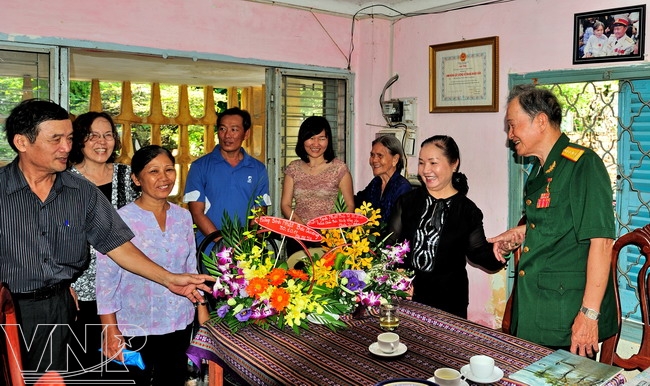 Friends and relatives wish intelligence hero, Colonel Tu Cang a long life on his 83rd birthday (October 30, 2011). Photo: Nguyen Luan |
Now, at the age of 83, he is writing his memoirs. Each of his books shows not only the quiet but glorious victories of the heroic intelligence forces of Vietnam, but also the examples of the ingenious, brave and talented intelligence agents of Vietnam who contributed to the great victory of the nation in the spring of 1975.
Story: Nguyen Vu Thanh Dat - Photos: Nguyen Luan – File
Story: Nguyen Vu Thanh Dat - Photos: Nguyen Luan – File

